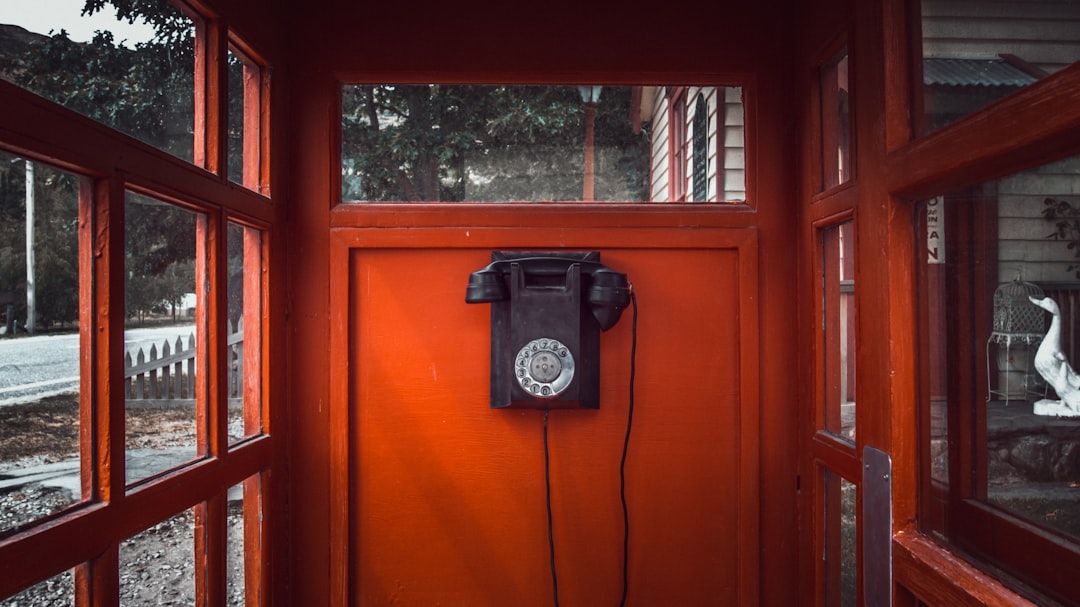Spam calls, characterized by pre-recorded messages and high volume, have become a significant problem in Maine, impacting residents' quality of life. To combat this issue, Maine residents can take several steps, including blocking numbers, enrolling in Do Not Call registries, and consulting spam call law firms or lawyers familiar with TCPA laws. Local journalism plays a crucial role by exposing patterns and trends, while legal advocacy helps residents understand their rights and seek remedies. The Telephone Consumer Protection Act (TCPA) provides a comprehensive legal framework, and specialized lawyers in Maine work to stop spam calls, offer compensation, and develop effective combat strategies through partnerships with journalists. Residents are encouraged to identify automated messages, document call details, and report them to relevant authorities for further action.
In the digital age, Maine residents are increasingly plagued by spam calls, leaving a significant impact on their daily lives. This article explores the critical role of local journalism in uncovering the patterns and extent of these nuisance calls. We delve into the legal framework, including the Telemarketing and Consumer Protection Act (TCPA), and highlight collaborations between journalists and lawyers to combat spam. Additionally, practical steps are outlined to empower Maine residents to stop and report spam calls, utilizing resources like local law firms specializing in TCPA cases.
Understanding Spam Calls and Their Impact on Maine Residents

Spam calls, or unsolicited telephone marketing calls, have become a persistent problem for many Maine residents. These unwanted calls often carry pre-recorded messages promoting various products and services, from debt relief to legal offers. While some spam calls may be easily identifiable as fraudulent, others can masquerade as legitimate business inquiries, making it challenging for recipients to discern the difference. The sheer volume of these calls can be overwhelming and frustrating for individuals and families across Maine, leading to a significant impact on their quality of life.
In response to this growing concern, many Maine residents are seeking solutions to combat the issue. Understanding how to stop spam calls is essential in reclaiming control over personal communication. Several methods can help reduce the influx of these unwanted messages, including blocking numbers through phone settings, enrolling in Do Not Call registries, and even consulting with a specialized spam call law firm or lawyers familiar with TCPA (Telephone Consumer Protection Act) laws in Maine. By combining technological tools and legal advocacy, residents can actively participate in creating a more peaceful and less intrusive communication environment.
The Role of Local Journalism in Uncovering Spam Call Patterns

Local journalism plays a pivotal role in uncovering patterns and trends related to spam calls, offering valuable insights into how these unwanted communications operate within communities like Maine. Through dedicated reporting, local news outlets can identify specific areas or demographics that are more susceptible to spam call invasions. This involves analyzing call volume, frequency, and the types of messages received, helping residents understand the scope of the issue.
Journalists can also collaborate with legal experts specializing in TCPA (Telecommunication Consumer Protection Act) cases to shed light on effective strategies for combating spam calls. By sharing stories and data, they increase awareness among citizens about their rights and available legal recourse. This partnership can lead to more targeted campaigns, such as educating Mainers on how to register with the National Do Not Call Registry or providing information about hiring a specialized law firm to stop spam calls and seek compensation under Maine’s Spam Call laws.
Legal Framework: Anti-Spam Laws and the TCPA in Maine

In Maine, the fight against spam calls is supported by a robust legal framework designed to protect residents from unwanted and fraudulent communication. The Telephone Consumer Protection Act (TCPA) serves as the primary federal law governing spam calls across the United States, including Maine. This legislation prohibits telemarketers from making automated or prerecorded phone calls without prior express consent of the recipient.
Maine has further strengthened its defenses against spam calls through state-level anti-spam laws. These laws not only align with the TCPA but also provide additional protections for residents. A spam call law firm or lawyer specializing in the TCPA in Maine can guide individuals on how to stop spam calls effectively, offering legal remedies and strategies to navigate the complex landscape of communication regulations.
How Journalists and Lawyers Collaborate to Combat Spam Calls

Journalists and lawyers often work hand in hand to combat spam calls, a growing concern in Maine and across the nation. In this collaborative effort, journalists play a pivotal role in uncovering patterns and trends related to spam calls, providing valuable insights that help legal experts craft effective strategies. They expose the tactics used by scammers, raising public awareness through investigative reporting. This awareness is crucial in empowering individuals to take preventive measures and report suspicious activities.
Lawyers specializing in telecommunications law, such as those at top-rated Spam Call Law Firms Maine, collaborate with journalists to navigate complex legal terrain. They use this partnership to develop cases against spam call perpetrators, utilizing state and federal laws like the Telephone Consumer Protection Act (TCPA). By combining investigative skills and legal expertise, they strive to hold offenders accountable and create a safer environment for Maine residents, ultimately helping to stop spam calls in Maine and beyond.
Practical Steps to Stop and Report Spam Calls in Maine

In Maine, dealing with spam calls is a growing concern among residents, leading many to seek effective solutions and legal recourse. The first step to combating this issue is understanding how and where these calls originate. Consumers are encouraged to investigate if the calls contain automated voices or prerecorded messages, which are common indicators of spam. Once identified, the next course of action is to document the details: note down the caller ID, time, and date of each call, as well as any specific patterns or recurring numbers.
Reporting these spam calls is crucial and can be done through various channels. Maine residents can start by registering their phone numbers with the National Do Not Call Registry, which helps filter out many unwanted calls. Additionally, several local journalism outlets and consumer protection agencies offer platforms to report spam calls, providing valuable data for tracking and investigating spammers. For those considering legal action, consulting a TCPA (Telemarketing Consumer Protection Act) lawyer in Maine is advisable. These experts can guide individuals on how to stop spam calls effectively and help them navigate the legal process if necessary.






